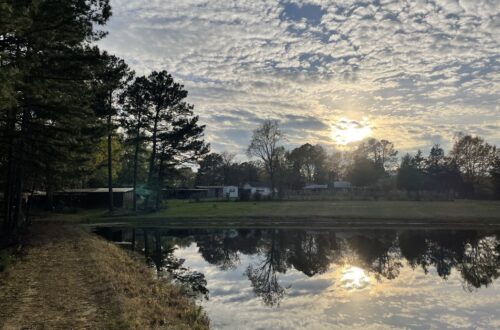
5 Ways to Build Resilience During COVID 19
Are you feeling the weight of COVID-19 yet? The added pressures, transitions, and drastic changes from this pandemic keep pressing on, churning though our “old” ways of life. Many of us continue to grieve while trying to accept this new reality of our world. Some of us are learning to see it as the new “normal,” yet still struggling to make sense of what has been, and what could lie ahead.
Thankfully, in the midst of these uncertain, messy times, we all have something going for us. And that is the capacity to cultivate resilience. Simply defined, resilience involves “the process of adapting well in the face of adversity, trauma, tragedy, threats or significant sources of stress” (APA, 2020).
But how does this happen? How do we individually and collectively cope with this pandemic, and what are some ways to build resilience during COVID 19?
Ways to Build Resilience during COVID 19
Dr. Ungar, a family therapy and researcher has done extensive work in the area of resilience. His work demonstrates that we build resilience through both our individual and collective resources and our mindsets (Ungar, 2018). Which means, that resilience itself is more than just “thinking” positive thoughts, or repeating positive affirmations. This journey of resilience involves an ongoing process of cultivating different psychological, social, and physical resources that we need for our health and well-being.
Based on the work of Dr. Ungar and others, here are some ways to build resilience during COVID 19 and in this time of uncertainty:
1. Care For Your Mental and Emotional Health
During this time of quarantining, be intentional about doing things that bring you joy, like that new hobby or project you’ve been thinking about starting. Set boundaries with the news, and avoid catastrophic, or “black and white” thinking. Maintain routines, structure, and stability when possible. Exercise self-compassion, and try not to judge yourself too harshly.
Remember, you’re not the only one making mistakes or questioning things. At the end of the day, we are all trying to figure things out and navigate this new “normal.” Give yourself a pat on the back, you’ve made it this far 🙂 .
2. Maintain Your Social Connections
Our social connections are also really important for building resilience. The more socially connected we are, the better we are able to fight against symptoms of depression or anxiety associated with this pandemic.
Based on Dan Seigal’s work, we learn that our our minds are relational, in that we make sense of ourselves and the world around us in the context of our relationships. The social isolation associated with COVID-19 can radically disrupt this process, and have a profound impact on our health and mental health.
In response, go schedule a zoom call a friend, invest deeper into your family relationships, write a letter to someone you love, or being bold and initiate a conversation with your neighbor across the fence. Don’t let social distancing stop you from connecting with the people you need, nor the people who also need you.
3. Strengthen and Sustain Your Physical Health
In addition to our social networks and mental health, our physical health is also an important resource for resilience. And, with all the concerns associated with COVID 19 and underlying health conditions, there’s no better time to get these areas and needs diagnosed and treated effectively!
Now, this doesn’t mean we should all run around questioning every symptom that emerges out of fear and paranoia. We want to be mindful about the needs of our bodies, not out of a place of fear, but from a curious, loving, and compassionate perspective.
Take a moment, and just tune in. Do you feel a craving for something? If so, what is it? Maybe it’s for more wholesome, less processed foods or better sleep. Or, do you need more sunlight, water, or exercise? What is it your body is wanting?
If you find yourself feeling tense, try going for a nature walk, or stream a yoga class through your TV. Or, perhaps you just need to sit down, right where you are, and do a 5 minute meditation simply focusing on your breath. Our bodies are good at telling us what they need, but sometimes, we don’t always listen. During this season, try listening closely to your body and truly making space for what it needs.
But, don’t forget to be kind and gracious with yourself if/when you don’t do this perfectly.
4. Nurture your Faith or Life Purpose
Another important resource is our “life purpose” or sense of identity. When life becomes uncertain, we may find ourselves thinking through deeper, more reflective life questions. “What’s the meaning of all this suffering?” or, “How can I make sense of this within my world view?” Interestingly enough, worldwide pandemics tends to shift people outside of their comfort zones and break them away from the day-to-day grind. When the risk of sickness and death shifts into the forefront of the world’s mind, people start thinking deeply and asking real questions about what’s “next.”
Try not to shy away from these bigger questions, doubts, or fears. God isn’t afraid of your questions, so go ahead, ask them. Take this time of reflection to help redefine or clarify your identity, values, or purpose in life. Seek out opportunities to express your faith through prayer, meditation, liturgy, or music.
5. Control What you Can & Let Go of Unrealistic Standards
This last tip is not necessarily a resource, but more of an attitude to have when working with and navigating our resources. It’s the practice of controlling what you can, and letting go of what’s left. If, indeed, as Dr. Ungar has said, that our resources help facilitate personal resilience, then it’s important to be smart and exert control over our physical, financial, and social resources in the best way we can.
If you’re feeling overwhelmed or out of control, think about the next best thing you can do and control. Maybe that’s cleaning your house, mowing your grass, going for a run, making your bed, or paying that over-due water bill that’s lingering on the kitchen table for weeks. Don’t think too hard with this, just be intentional about acting on the next right thing.
There are times, however, when it’s equally important to acknowledge and accept the things we cannot control. There is freedom to be found in letting go of unrealistic expectations and perfectionist standards, especially in times like these. In this place of surrender, we stop resisting the forces of life, and instead find ourselves moving, flowing, and adapting alongside it.
Rather than taking the form of a “final product” that we’re all striving to obtain, resilience itself is more refined and strengthened through the deeper lessons and stories behind it.
As we all seek ways to build resilience during COVID 19, may we embrace a posture of grace, compassion, and patience, both for others and for ourselves. This wildly uncertain worldwide pandemic is something, to some degree, that we’re all facing and navigating together. Let’s not lose sight of that.
For more on the stages behind resilience, read my other post here.
Resources:
The American Psychological Association. (2020). “Building Resilience.” https://www.apa.org/topics/resilience
Ungar, M. (2018). What Works: A Manual for Designing Programs that Build Resilience.




